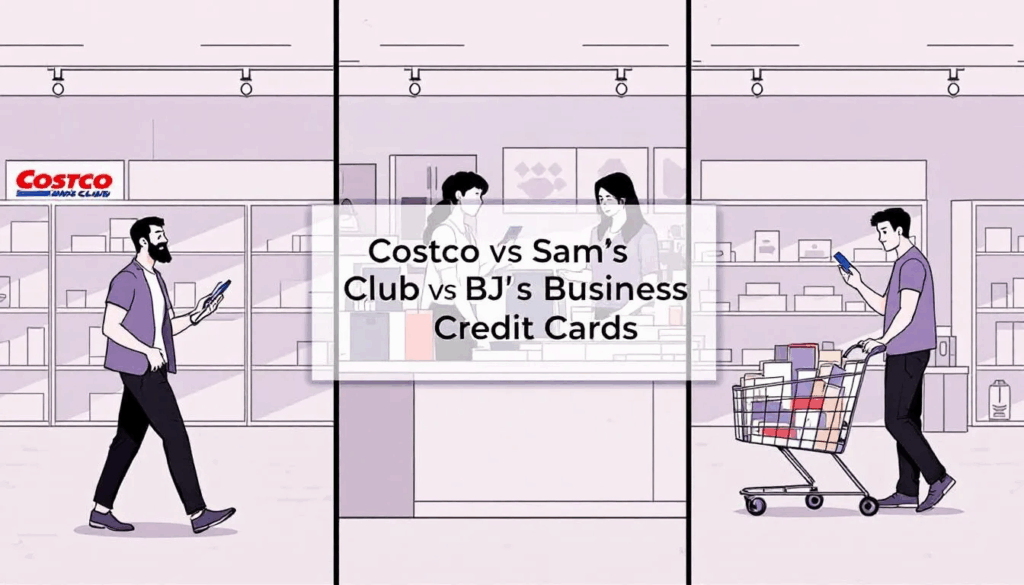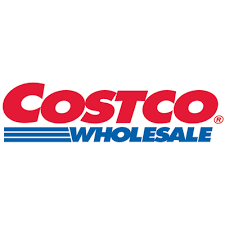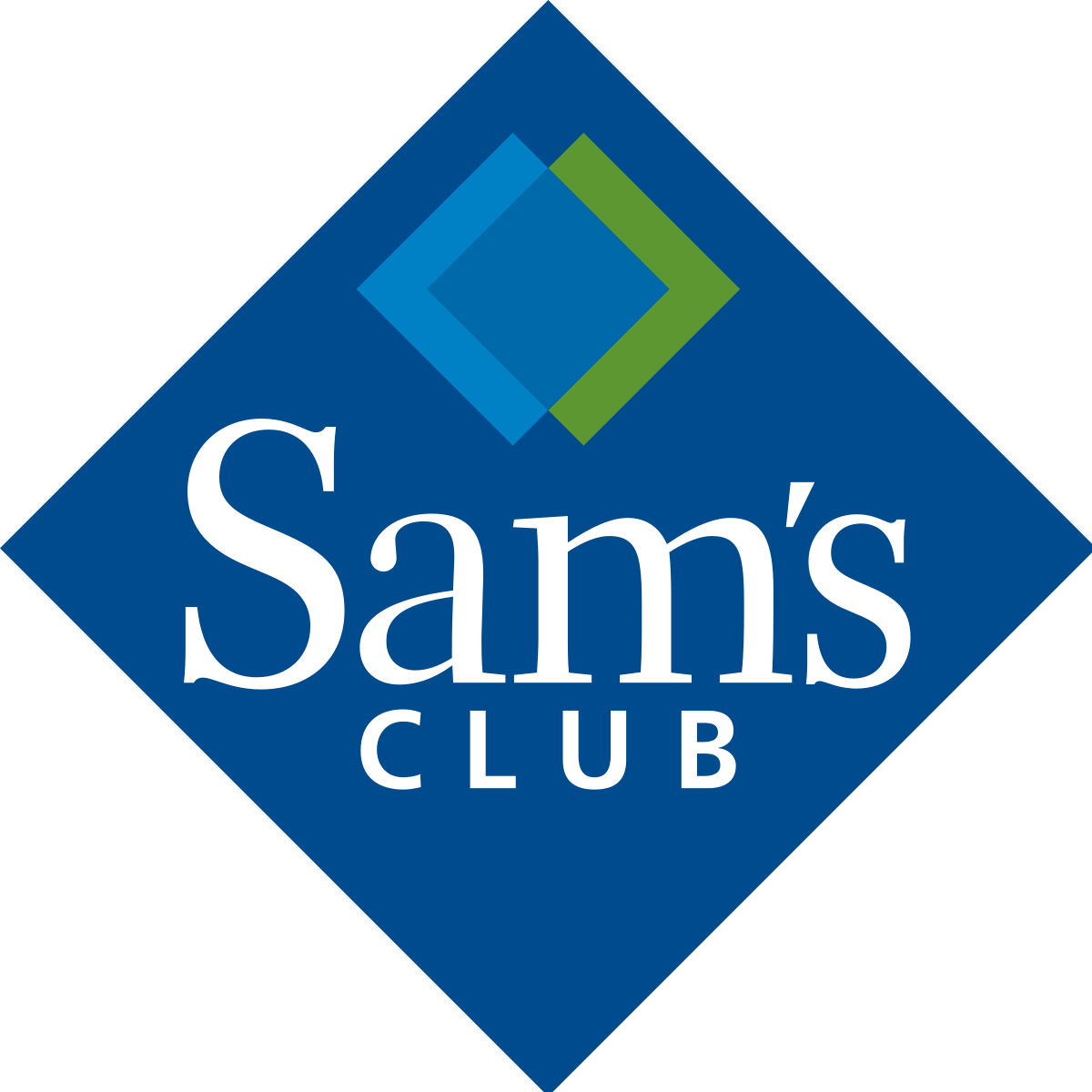What are Costco, Sam’s Club, and BJ’s Business Credit Cards?
Co-branded wholesale club credit cards are designed to help members earn rewards on their everyday purchases—such as fuel, dining, travel, and in-store purchases. These cards often double as membership cards and can be used anywhere the payment network (such as Visa or Mastercard) is accepted.
The benefits provided by each card may vary based on membership level and issuer terms. Co-branded credit cards for wholesale clubs are often cashback cards with no annual fee. Let’s look at each one:
The information about these cards has not been independently reviewed or approved by the card issuers.
Costco Business Credit Card
The Costco Anywhere Visa® Business Card by Citi is a cashback card exclusively for Costco members. It earns 4% back on eligible gas and EV charging, 3% on dining and travel, 2% on Costco purchases, and 1% everywhere else. Note: Only Visa cards are accepted for in-store payments at Costco.
Citi must approve applicants to receive the Costco Anywhere Visa® Business Card.
Sam’s Club Business Credit Card
Issued by Synchrony Bank, the Sam’s Club Mastercard for Business offers 5% back on gas (up to $6,000 annually, tracked monthly), 3% back on dining and travel, and 1% back everywhere else. There is a cap on the amount of rewards you can earn on gas purchases each year. Plus, you earn 1% on Sam’s Club purchases unless you have a Plus membership, which unlocks higher rewards.
BJ’s Business Credit Card
BJ’s offers the BJ’s One+ Mastercard® for Business, issued by Capital One. It offers 5% back on most BJ’s purchases, 2% on dining, and 1.5% on all other purchases. BJ’s recently revamped its card program, making it more competitive against Costco and Sam’s Club. The latest version of the BJ’s One+ Mastercard® for Business offers improved rewards compared to previous versions.
How do Wholesale Club Business Credit Cards work?
Wholesale club business credit cards function like standard cashback credit cards but are optimized for spending at their respective clubs. A co-branded card for your preferred wholesale club is often the best way to earn more than 2% rewards in-store.
Wholesale clubs simplify the payment processing process by offering standardized pricing to all members. Wholesale clubs typically don’t fall under the categories of grocery store and supermarket rewards. Unlike supermarkets, wholesale clubs are often excluded from grocery rewards categories. Utilities are generally not included as bonus categories for these wholesale club business credit cards. Wholesale club credit cards typically offer rewards and perks that can help pay for membership fees.
For example, general-purpose credit cards typically earn only 1% rewards at wholesale clubs, but co-branded cards can offer 2%–5% back.
Other important notes:
- Costco only accepts Visa for in-store payments.
- Costco cash cards can be used for in-store purchases, while debit or credit cards that are not generally accepted by Costco can also be used for these transactions.
- All wholesale clubs are aligned with some of the largest payment processors in the U.S.
- Credit card welcome offers are a quick and easy way to earn significant rewards.
Welcome Offer and Sign-up Bonus: What to Expect
When searching for the best credit cards for wholesale clubs like Costco, Sam’s Club, and BJ’s Wholesale Club, the welcome offer and sign-up bonus can significantly impact the overall value you receive. These upfront incentives are designed to reward new cardholders for their initial spending, often providing a substantial boost to their rewards balance right from the start.
Most competitive credit card offers include a welcome bonus that’s triggered after you meet a minimum spend requirement—typically a set amount in combined purchases within the first few months of account opening. For example, you might earn a $200 cash back bonus or thousands of rewards points after spending $1,000 in the first three months. This can be especially valuable for businesses that regularly shop at wholesale clubs, as those initial purchases can help you quickly qualify for the bonus.
In addition to the sign-up bonus, many of the best credit cards for wholesale club purchases offer higher earn rates in specific categories. For instance, you might find cards that provide extra cash back or points for spending at grocery stores, gas stations, or online shopping. Some cards even include unique perks, such as EV charging credits, travel insurance, or purchase protection, adding further value to your membership and everyday business expenses.
It’s crucial to weigh the annual fee against the potential rewards and benefits. While some wholesale club cards have no annual fee beyond the required club membership, others may charge a fee in exchange for higher rewards or premium services. Always review the terms and conditions to understand any limitations, such as caps on bonus categories or restrictions on where you can earn the highest rates.
To maximize the benefits of your credit card, consider your business’s typical spending habits. If you frequently make large purchases at wholesale clubs, a card with a generous welcome offer and high ongoing rewards in those categories can help you save significantly over time. Don’t forget to check for additional benefits, such as travel protections, purchase security, or special offers for online shopping and EV charging.
By carefully comparing credit card offers and understanding the value of welcome bonuses, you can choose the card that best fits your business needs—helping you earn more rewards, save on everyday expenses, and enjoy added perks every time you shop at your favorite wholesale club.
What are the qualifications for a Costco, Sam’s Club, or BJ’s Credit Card?
Each club requires membership before applying for its card, and approval depends on your credit profile. Applicants are considered based on their credit profile and membership status. Most people will need to meet the minimum credit score requirements to qualify.
Here’s a quick breakdown:
| Card | Membership Requirement | Credit Score Needed | Issuer | Annual Fee (Card) |
|---|---|---|---|---|
| Costco Anywhere Visa® Business Card | Paid Costco membership | Good to Excellent (700+) | Citi | $0 (membership required) |
| Sam’s Club Mastercard® Business | Paid Sam’s Club membership | Fair to Good (650+) | Synchrony | $0 (membership required) |
| BJ’s One+ Mastercard® for Business | Paid BJ’s membership | Good (670+) | Capital One | $0 (membership required) |
How do the Costco, Sam’s Club, and BJ’s Business Credit Cards compare?
When comparing the Costco, Sam’s Club, and BJ’s business credit cards, it quickly becomes clear that while all three programs offer substantial cashback opportunities, several factors, such as spending habits and membership level, influence which card is best for your business. The way those rewards are structured can make a big difference depending on the type of business using them. Costco’s Anywhere Visa Business Card by Citi is designed with a strong emphasis on gas, dining, and travel. Businesses with employees frequently on the road or those that entertain clients may find Costco’s 4% back on fuel and 3% back on dining and travel more valuable than the 2% back offered on in-store purchases. However, a missing feature is that Costco does not provide elevated rewards for in-club purchases compared to its competitors.
In contrast, Sam’s Club’s business Mastercard allocates its most considerable earning potential to fuel purchases as well, offering 5% back on gas purchases up to a yearly limit, plus 3% back on dining and travel. The rewards cap for gas applies every quarter, further limiting the total rewards a business can earn in that category. However, its rewards structure is less generous when it comes to in-club purchases unless the business upgrades to a Plus membership, which unlocks additional benefits provided only to Plus members.
BJ’s, on the other hand, has structured its program to appeal directly to members who do the bulk of their shopping in-store. The BJ’s One+ Mastercard for Business provides 5% back on most purchases inside the warehouse and a flat 1.5% on everyday spending outside the club, which is more flexible than either Costco or Sam’s Club for general use. This card is an excellent option for businesses that want to turn regular warehouse purchases into substantial cash back.
The information in this comparison has been collected independently and is not endorsed by the card issuers.
Merchant Services Comparison
Another critical point of comparison lies in how each club handles merchant services. Wholesale clubs have long offered payment processing solutions for small businesses, and like their credit cards, these programs are often standardized rather than customizable. Businesses can make selections among various merchant service providers offered by each club. In this regard, BJ’s and Costco tend to provide the most favorable pricing for merchant services among the three. Both offer competitive transaction fees and favorable rates, making them attractive for small and mid-sized businesses that process a significant volume of payments.
Sam’s Club, by comparison, remains competitive but tends to be less appealing for larger businesses that process higher transaction volumes. The merchant services program at Sam’s Club has been criticized for being less advantageous when compared to Costco’s lower qualified rates or BJ’s lower per-item fees, particularly for companies with significant credit card processing needs.
Network Acceptance Comparison
Network acceptance is also a factor. Costco’s card operates exclusively on the Visa network, which is widely accepted worldwide, but limits in-store Costco payments to Visa only. Costco only accepts Visa for in-store payments, but it allows online purchases with Mastercard.
Sam’s Club and BJ’s both partner with Mastercard, which offers broader flexibility when shopping both in-store and elsewhere. For businesses that need a single card they can rely on everywhere, Mastercard-backed cards may be a more convenient option. Each card issuer also provides an app to help you manage your account, track rewards, and verify eligible purchase categories, making it easier to maximize your benefits. Meanwhile, companies that already do most of their business through Costco may not find the Visa limitation to be a significant obstacle.
Membership Cost Comparison
The membership costs for each wholesale club are also fairly comparable, though they can influence the overall value of the credit card program. Costco memberships typically range from $60 for the standard option to $120 for the Executive option, which doubles the in-store rewards to 2%. Some rewards and benefits are limited to higher-tier memberships or specific spending categories.
Sam’s Club memberships start at $50 annually, with a Plus membership at $110 unlocking additional benefits for Mastercard cardholders. BJ’s memberships are similarly priced, with a base membership costing around $55 and a higher-tier option at $110 that maximizes cash back and perks. While the credit cards themselves do not charge annual fees, the required club memberships function as a barrier to entry and should be factored into the cost-benefit analysis.
Real-World Applications
To see how these differences might play out in practice, consider three different small business scenarios:
A construction company with multiple trucks that fuel up daily could save more with Sam’s Club, as its 5% gas rewards quickly add up over the course of a year. Although Costco also offers substantial fuel rewards at 4%, Sam’s Club provides contractors with slightly more benefits, and the Mastercard network ensures they won’t encounter issues with acceptance at non-warehouse stations.
By contrast, a consulting firm that regularly takes clients out to lunch and books frequent flights would benefit more from the Costco card, since its 3% back on dining and travel can outpace what BJ’s offers in those categories. Over time, those travel and meal expenses would generate more rewards than the smaller in-store spending.
Finally, a neighborhood convenience store that buys supplies at BJ’s every week would likely get the most out of the BJ’s One+ Mastercard. With 5% back on nearly all BJ’s purchases and a flat 1.5% back elsewhere, the store’s consistent weekly shopping trips would translate into steady cashback. At the same time, BJ’s merchant services offer lower per-item fees, which are especially valuable for retailers with smaller average ticket sizes.
In short, each wholesale club’s card excels for a different type of business. Costco’s program is best suited for companies with heavy travel and dining budgets, Sam’s Club is ideal for fuel-intensive operations, and BJ’s is the most rewarding for frequent in-store buyers with smaller-ticket purchases.
Choosing the right card isn’t just about which wholesale club is closest to your business—it’s about aligning the rewards and merchant services with the way your company actually spends and processes money. It is beneficial to consider a flat-rate rewards card if you don’t spend a significant amount at wholesale clubs.
Comparison Table
| Feature | Costco Business Card | Sam’s Club Business Card | BJ’s Business Card |
|---|---|---|---|
| Rewards | 4% gas, 3% dining/travel, 2% Costco, 1% elsewhere | 5% gas, 3% dining/travel, 1% elsewhere | 5% BJ’s, 2% dining, 1.5% elsewhere |
| Network | Visa | Mastercard | Mastercard |
| Best For | High fuel & travel spend | Frequent gas buyers | Heavy BJ’s shoppers |
| Membership Cost | $60–$120 | $50–$110 | $55–$110 |
| Merchant Services | Favorable pricing | Less competitive | Favorable for small tickets |
Note: Rewards are subject to a cap in specific categories, such as gas purchases.
What is the application process for these Business Credit Cards?
Each application process is streamlined and available online.
Once your application is submitted, you will be notified if you are approved for the card.
Costco Business Credit Card Application Process
Note: Only Costco members are eligible to apply for the business credit card.
- Become a Costco member.
- Visit Citi’s application page.
- Fill in business and personal info.
- Submit for approval.
Sam’s Club Business Credit Card Application Process
- Join Sam’s Club.
- Apply online at Synchrony.
- Provide business details.
- Wait for approval and activation.
Rewards are typically posted to your account each month after your statement closes.
BJ’s Business Credit Card Application Process
- Sign up for a BJ’s membership.
- Apply through Capital One’s portal.
- Enter business and financial details.
- Approval is provided by Capital One after reviewing your application. Get approval and start using the card.
What are the Pros & Cons of Each Card?
Here’s a quick summary of the pros and cons of the Costco, Sam’s Club, and BJ’s business credit cards.
Costco Business Credit Card
Pros:
- Strong gas, dining, and travel rewards
- No annual fee (beyond membership)
- Accepted worldwide as a Visa
Cons:
- Costco only accepts Visa in-store
- Rewards are redeemable once annually
- Requires strong credit
Sam’s Club Business Credit Card
Pros:
- High 5% gas rewards
- Works anywhere Mastercard is accepted
- Easier approval than Costco
Cons:
- Only 1% rewards at Sam’s Club without a Plus membership
- Rewards capped annually
- Merchant services are less competitive
BJ’s Business Credit Card
Pros:
- 5% back on BJ’s purchases
- 1.5% back everywhere else (better than Costco/Sam’s)
- More flexible redemption
Cons:
- Lower dining/travel rewards than Costco/Sam’s
- Requires BJ’s membership
- Fewer locations compared to Costco/Sam’s
Frequently Asked Questions
Which Business Credit Card offers the better Rewards Programs?
- Costco: Ideal for businesses with high expenses on gas, travel, and dining.
- Sam’s Club: Best for small businesses that drive often and need flexible Mastercard acceptance.
- BJ’s: Best for frequent BJ’s shoppers who value simple, high cashback in-store.
How much can I save with a Costco, Sam’s Club, or BJ’s Credit Card?
The savings potential of a wholesale club business credit card depends not only on the rewards structure but also on the membership cost. Each card offers strong cashback opportunities, but the real value lies in pairing rewards with the frequency of shopping at a chosen club. Costco, Sam’s Club, and BJ’s all price their memberships in the same range—roughly $50 to $60 for standard and $100 to $120 for higher-tier programs—so the annual fee is relatively comparable across the board.
On pure rewards, BJ’s offers the most generous return with 5% back per dollar spent on nearly all in-store purchases, which can add up quickly for businesses that buy inventory or supplies in bulk. Rewards are provided only on eligible purchases as defined by each club. Costco offers just 2%back per dollar spent in the warehouse, but compensates with substantial rewards on gas, travel, and dining, which appeals to businesses with more diverse spending needs. Sam’s Club falls behind on in-club rewards unless paired with a Plus membership, but it can be very attractive for companies that spend heavily on fuel, thanks to its 5% gas benefit per dollar spent.
Businesses can strategically order their purchases to maximize rewards, such as timing large transactions to take advantage of category bonuses or staying within transaction limits to ensure all spending qualifies for the highest cashback rates.
When factoring in the cost of membership, the real savings story becomes clear. A business spending $50,000 annually in-store would generate $2,500 in cashback at BJ’s, $1,000 at Costco, and just $500 at Sam’s Club without the Plus upgrade. Even after accounting for membership fees, BJ’s comes out ahead for businesses with heavy warehouse spending. At the same time, Costco and Sam’s Club provide more balanced value for those with significant fuel or travel expenses.
Card and Membership Savings Comparison
| Club & Card | Membership Cost (Standard/Upgraded) | In-Store Rewards | Example: $50,000 In-Store Spend | Net Value After Membership |
|---|---|---|---|---|
| Costco Anywhere Visa Business Card | $60 / $120 | 2% in-store (4% gas, 3% travel & dining) | $1,000 | $880–$940 net value (depending on membership) |
| Sam’s Club Business Mastercard | $50 / $110 | 1% in-store (5% gas, 3% travel & dining) | $500 (or $1,000 with Plus) | $390–$890 net value |
| BJ’s One+ Mastercard Business | $55 / $110 | 5% in-store (1.5% elsewhere) | $2,500 | $2,390–$2,445 net value |
Merchant Services Comparison
Beyond rewards, wholesale clubs also offer merchant services—credit card payment processing programs designed to help small businesses manage customer transactions. Merchant services are provided directly by each wholesale club or through its partners. Like their card programs, these merchant services are standardized, offering a straightforward approach rather than highly customized solutions. Merchants have control over their payment processing options, allowing them to choose the most cost-effective solution. The key difference lies in how pricing is structured, which has a significant impact depending on the average size of a business’s transactions.
Costco and BJ’s consistently provide the most favorable pricing among wholesale clubs. Costco tends to be the better option for merchants with larger average ticket sizes, thanks to lower qualified percentage rates. BJ’s, on the other hand, offers lower per-item transaction fees, making it more cost-effective for retailers or businesses that process many smaller purchases. Sam’s Club merchant services are competitive in some cases, but are generally less advantageous for larger businesses compared to those offered by Costco or BJ’s.
The table below presents a simplified comparison of estimated merchant service costs for processing the same volume of sales under different average ticket sizes. While exact costs vary based on industry and processing details, this comparison highlights the general trends that make Costco more appealing for larger transactions and BJ’s more attractive for smaller, frequent sales.
Merchant Services Cost Comparison (Estimated $50,000 Annual Processing)
| Club | Rate Structure (Approx.) | Avg Ticket $20 (2,500 Transactions) | Avg Ticket $100 (500 Transactions) |
|---|---|---|---|
| Costco | ~1.99% + $0.25 per txn | ~$1,875 total fees | ~$1,245 total fees |
| Sam’s Club | ~2.29% + $0.20 per txn | ~$2,000 total fees | ~$1,350 total fees |
| BJ’s | ~2.49% + $0.10 per txn | ~$1,500 total fees | ~$1,355 total fees |
This analysis reinforces the idea that choosing the right wholesale club card isn’t just about rewards—it’s also about how your business accepts payments. Businesses with higher-ticket sales will often save more with Costco, while those with lower average transactions may find BJ’s the better fit. Sam’s Club offers a middle ground, but its pricing structure typically makes it less competitive for both high- and low-ticket merchants.
Which option is better for Bad Credit?
Many small business owners struggle with a low credit score, making bad credit business financing options crucial. Here’s how these three credit card options compare:
- Sam’s Club Business Card is the most accessible, often approving fair-credit applicants. Applicants with lower credit scores may still be approved for the Sam’s Club Business Card.
- BJ’s requires good credit but is slightly easier than Costco.
- Costco typically requires excellent credit, making it less accessible for those with bad credit.
What are the alternatives to a Costco, Sam’s Club, or BJ’s Business Credit Card?
While wholesale club credit cards offer unique value and cost-saving opportunities, they can also limit access to funding. Many business financing options exist outside of wholesale or store-specific business credit cards.
Other Business Credit Cards
Most credit card issuers provide business rewards card options. Many other cards can complement or even outperform wholesale club credit cards for certain businesses.
In some cases, you can also use consumer rewards cards for business purchases. Credit card welcome offers provide a fast way for new cardholders to earn a significant number of points or miles.
- Chase Ink Business Cash: Offers cash back on everyday business expenses, including office supplies, internet, and phone services, helping businesses earn rewards while managing their expenses.
- American Express Blue Business Cash: Provides 2% cash back on all purchases up to a set limit, supporting credit building and flexible expense management.
- Capital One Spark Cash for Business: Delivers unlimited 2% cash back on all purchases, making it ideal for businesses that want straightforward rewards and consistent reporting to business credit bureaus.
- Bank of America Business Advantage Cash Rewards: Offers tiered cash back on categories such as office supplies and gas, helping companies save on regular expenses while improving their credit history. Bank of America cards with Platinum Honors status can earn up to 2.625% cash back on eligible purchases. Bank of America offers a 75% bonus on eligible consumer cards for Platinum Honors status holders, increasing cash back rates. Some cards allow you to earn 5.25% cash back when buying Costco Cash cards online.
- Synchrony Venmo Visa: Counts warehouse stores as grocery purchases, earning 3% cashback.
- PayPal Debit Card: The PayPal Debit Card offers a monthly 5% cashback category option, specifically linked to grocery stores and wholesale clubs.
- Robinhood Gold Card: The Robinhood Gold Card currently earns 3% cash back on all purchases, with no limits, including purchases at warehouse stores.
Trade Credit
Many suppliers offer Net 30 vendor accounts to build credit and improve cash flow. Examples include:
- 🖨️ Office Depot: Offers a Net 30 account for businesses to purchase office supplies, furniture, and more, with easy payment terms to help build credit.
- 📚 Staples: Provides a Net 30 account for purchasing office essentials, technology, and other business materials, supporting credit growth with timely payments.
- 👕 Business T-Shirt Club: A Net 30 account option for businesses to buy customized apparel, helping build credit while acquiring branding essentials.
- 🛠️ Uline: A vendor offering a Net 30 account for shipping supplies, packaging materials, and other operational needs, with regular reporting to business credit bureaus.
- 💻 Quill: Specializes in office supplies, furniture, and technology, offering a Net 30 account to help businesses maintain cash flow while establishing credit.
- 🏢 Grainger: A supplier for industrial, safety, and maintenance products, providing a Net 30 account option for companies needing these types of goods.
Small Business Loans
Wholesale club cards are convenient, but small business loans often provide more flexible financing options for your company:
- Business Line of Credit: A business line of credit offers your company revolving access to capital, making it an ideal tool for managing cash flow and addressing short-term funding needs.
- Business Term Loan: A business term loan offers fixed repayment financing over a predetermined term, making it suitable for larger purchases or long-term projects.
- Equipment Financing: Equipment financing allows your business to purchase or lease essential equipment affordably, with equipment financing designed to preserve working capital.
- SBA Loans: SBA loans are low-rate, government-backed loans that can help small businesses access funds that might not be available through traditional financing.
- Merchant Cash Advance: A merchant cash advance offers fast funding against future sales, making it a valuable option for businesses that need quick liquidity.
- Receivables Factoring: Receivables factoring advances cash on outstanding invoices, enabling businesses to maintain a stable cash flow while awaiting client payments.
- Working Capital Loans: Working capital loans cover day-to-day expenses, providing a flexible solution to support ongoing operational costs.
Costco vs Sam’s Club vs BJ’s Business Credit Card – Final Thoughts
Each wholesale club card has unique strengths. Costco is excellent for travel, gas, and larger-ticket items from merchants. Sam’s Club shines for businesses that rely heavily on fuel and value Mastercard’s flexibility. BJ’s is the best for straightforward in-store cashback and smaller average-ticket merchants.
The right choice depends on where your business spends the most money. For many small businesses, pairing a wholesale club credit card with another high-rewards business card or small business loan can maximize both savings and flexibility.
Contact us if you have further questions or are ready to apply for a small business loan. Our alternative financing experts can help you find the best business funding option for your needs.















